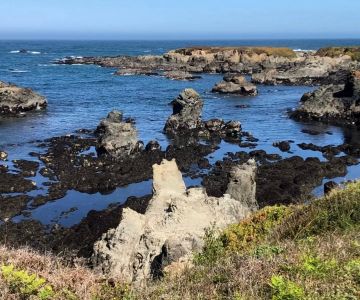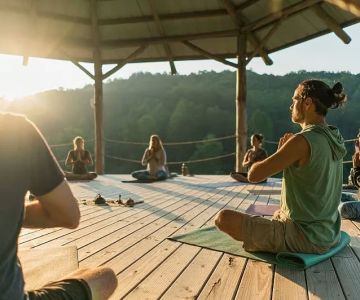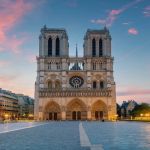1. Why Exclusive Art Travel Matters
For travelers who collect memories the way others collect canvases, exclusive travel experiences for art lovers are more than bragging rights—they’re a way to understand culture at its source. Rather than standing three rows back in a crowded gallery, you step into quiet rooms, hear the creak of studio floors, and listen as artists explain the stories behind their work. This shift—from passive viewing to intimate dialogue—changes how you see a city and, honestly, how you see yourself.
1.1 A purpose-driven way to see the world
Art-centered trips layer meaning over sightseeing. A morning might start with a curator-led walk through a museum’s conservation lab; the afternoon could be a tasting menu inspired by a current exhibition. Even seasoned travelers find that this level of curation reveals the heartbeat of a place.
1.2 Who benefits most
Collectors, design professionals, students of art history, and curious beginners all gain from small-group formats. The hallmark of exclusive travel experiences for art lovers is thoughtful pacing—quality time with artworks, makers, and neighborhoods rather than checklist tourism.
2. Signature Experiences Around the World
Below are deeply detailed ideas that demonstrate how curated access elevates an art trip. These are templates, not cookie-cutter itineraries—the focus is on immersion and narrative.
2.1 Paris — After-hours at the icons, mornings in ateliers
Imagine a twilight entry to a landmark museum with a senior curator who walks you through two or three masterworks, not twenty. The next day, you’re in a left-bank atelier where a printmaker demonstrates intaglio techniques; you leave with an artist-signed trial proof wrapped in tissue. Lunch is at a bistro where the menu riffs on color theory—saffron, beet, and charcoal—tying cuisine to composition.
2.2 Venice — Biennale navigation with a critical eye
At biennales, the difference between wandering and understanding is guidance. A specialist helps you read national pavilions like chapters in a novel, then detours to a glass workshop on Murano to watch a maestro shape a form that echoes themes from a pavilion you loved. Your notebook fills with ideas, not just photos.
2.3 Tokyo — Neo-craft and minimalism in motion
In Tokyo’s galleries, you’ll see ceramics that look grown, not made. A day may combine a minimalist architecture walk with a private viewing room at a contemporary gallery. Later, you join a kintsugi artisan to repair a tiny chip in porcelain—an unforgettable, hands-on metaphor for resilience.
2.4 Santa Fe — Earth, pigment, and sky
In the American Southwest, light itself feels curated. Mornings start with adobe architecture and regional museums; afternoons take you into desert studios where painters grind natural pigments. A dusk visit to an installation space—where sound, wind, and shadow become materials—closes the loop between land and art.
3. Behind-the-Scenes Access and Ethics
True exclusivity should feel respectful, not extractive. Curatorial briefings and studio visits are arranged with consent and fair compensation; groups are intentionally small to protect the artists’ time and creative rhythm. When a trip promises “VIP access,” ask how it supports the local arts ecosystem. The best programs practice responsible patronage—acknowledging provenance, avoiding cultural shortcuts, and fostering long-term relationships.
3.1 What “private” should actually mean
“Private” doesn’t have to be flashy; it can mean entering a gallery before opening hours or viewing a piece off-display in a study room. It’s about clarity of purpose: seeing better, not just seeing first.
3.2 Photography, presence, and permission
Many artists welcome photos; others prefer conversations without cameras. The most rewarding moments often happen when you set the phone down and listen—then jot a few lines that become your favorite souvenir.
4. Real Travel Stories from the Road
Story: A rainy night in Paris — During a stormy evening entry to a museum, a conservator rolled out a painting under cool lights and spoke softly about varnish, brushwork, and patience. The small group stood in near silence; someone wiped away a tear. Later, over cocoa in a nearby café, the conversation turned to our own creative blocks. That night didn’t just teach us about art; it nudged us to live with more attention.
Story: Murano’s quiet furnace — In a family-run glass studio, the maestro reheated a piece to pull a fine thread of glass that caught the light like a strand of dawn. No crowd, no rush—just heat, rhythm, and a craft family that had taught three generations to read fire the way sailors read wind.
Story: A New Mexico sky lesson — An installation in the desert used the horizon as a frame. As the sun dropped, colors shifted from peach to violet; a curator explained how perception can be curated, too. We understood the piece only when the land finished the sentence.
5. How to Choose the Right Itinerary
Start with your “why.” Do you want to deepen a collection, learn a technique, or simply feel art more intensely? Then evaluate the curation: group size under ten, named experts, and time set aside for reflection. Look for balance—major institutions paired with independent spaces, and a cadence that alternates intensity with open hours for serendipity.
5.1 Vetting expertise
Seek programs led by art historians, curators, or practicing artists. Excellent itineraries publish bios and past projects, and they’re transparent about access: who opens the door, and why it matters.
5.2 Craft meets cuisine
The best exclusive travel experiences for art lovers pair culinary stops with the art narrative—chef collaborations after a textile studio, natural-wine bars after land-art sites—so the senses converse with one another.
6. When to Book and What to Expect
Peak events—biennales, major retrospectives, seasonal festivals—sell out months in advance. Expect early starts, comfortable walking shoes, and a willingness to let curiosity lead. Good operators provide clear briefings, flexible pacing for different energy levels, and contingency plans if a studio session runs gloriously long (it happens).
6.1 Group dynamics
Small cohorts amplify the experience: you hear every word, ask the questions that matter, and form conversations that carry into dinner. Many travelers return home with lifelong friends—and a few sketches on napkins.
7. Plan Your Own Exclusive Art Journey
If this approach speaks to you, consider a custom path designed around your interests. Whether you crave after-hours museum time, guided biennale days, or a series of intimate studio visits, a tailored plan turns admiration into understanding. For more curated ideas and expert-led options, explore 【Refined Travel 】—a trusted source for exclusive travel experiences for art lovers with thoughtful pacing, vetted experts, and meaningful access.
7.1 A gentle nudge to begin
Ready to turn inspiration into an itinerary? Sketch your “must-feel” moments, note the artists or movements that move you, and bring the list to 【Refined Travel 】 for refinement. Want to learn more and plan the perfect route for your tastes and timeline? Begin your consultation and let the world’s studios, galleries, and kitchens open just for you.







 Bass Campground0.0 (0 reviews)
Bass Campground0.0 (0 reviews) Anglers Sunset RV Park0.0 (0 reviews)
Anglers Sunset RV Park0.0 (0 reviews) Towerview Mobile Home Park3.0 (7 reviews)
Towerview Mobile Home Park3.0 (7 reviews) Joe Overstreet Landing4.0 (78 reviews)
Joe Overstreet Landing4.0 (78 reviews) Sebring Village Mobile Home Park4.0 (189 reviews)
Sebring Village Mobile Home Park4.0 (189 reviews) Walnut Hills/Deluxe Mobile Home Park3.0 (59 reviews)
Walnut Hills/Deluxe Mobile Home Park3.0 (59 reviews) Exclusive Travel Packages for First-Class Travelers: A Guide to Luxury Vacations
Exclusive Travel Packages for First-Class Travelers: A Guide to Luxury Vacations Refined Travel Experiences in Southeast Asia: Explore Luxury & Unique Destinations
Refined Travel Experiences in Southeast Asia: Explore Luxury & Unique Destinations How to Make the Most of Luxury Vacation Deals: Expert Tips for Savvy Travelers
How to Make the Most of Luxury Vacation Deals: Expert Tips for Savvy Travelers Refined Travel Itineraries for Art and Culture Lovers: Explore the World of Art and History
Refined Travel Itineraries for Art and Culture Lovers: Explore the World of Art and History How to Enjoy a Refined Travel Experience in the Mountains
How to Enjoy a Refined Travel Experience in the Mountains Most Luxurious Destinations for Honeymooners: Top Spots for Romance and Luxury
Most Luxurious Destinations for Honeymooners: Top Spots for Romance and Luxury